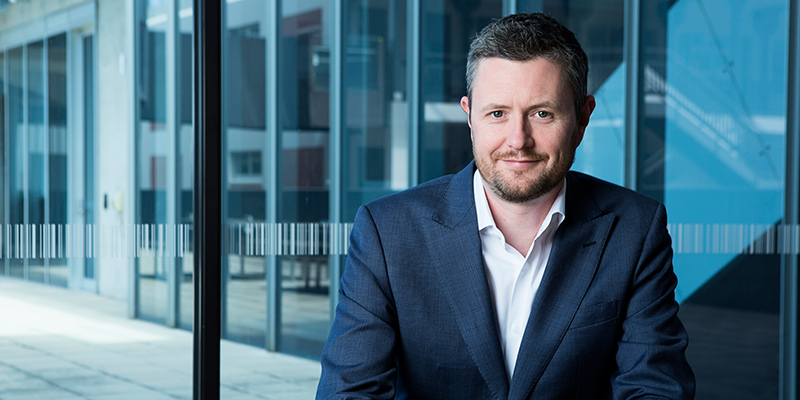From the Vice Chancellor: A question of culture
 INSIDE UNISA
INSIDE UNISAOver the past week or so, many people at both UniSA and the University of Adelaide have participated in a Staff Culture Survey. For those who have, thank you, and for any staff who would like to but haven’t got around to it yet, there’s still plenty of time before it closes on Monday 4 March.
Just like it says on the tin, the survey aims to provide a clearer understanding of how staff at each university feel about the culture at their current institutions.
It is part of a huge piece of work going on right now focused on ensuring the teams guiding the formation of the new Adelaide University understand what staff like, and what they don’t, so they can embrace the former, and be rid of the latter forever.
Those teams are looking at everything, and this is a unique opportunity to do so at a time when there is growing awareness about the importance of workplace wellbeing, both within the university sector specifically, and across the wider community.
We’re aware of the challenges and the opportunities that come with that. And we’re listening to staff, students, and other stakeholders – including UniSA’s own world-leading experts in the field – as we work through that. As we do, we’re taking a big-picture approach, and trying to ensure positive culture is something woven through every fibre of the new university, not just something pinned on for show, like a badge on a canvas bag.
You see, human cultures are messy things – gloriously so. It’s often almost impossible to draw a ring around a particular culture, to define it, to explain definitively how and why it came about. Dancing and cuisine may be examples of culture, but a culture is not like a set of dance steps or a recipe – it’s not something that can just be learned and replicated.
Cultures are the collective outcome of a huge number of individual actions, and while those individual actions may be conscious and deliberate, the collective outcome is usually far less certain. That outcome is an interaction, an intersection, and can have as many different interpretations as there are individuals contributing to it.
And so, as we begin to shape the culture of the new Adelaide University, we can’t simply look forward two years and say, “Our culture will be X, Y and Z”. It doesn’t work like that. We don’t get to directly determine our culture – we get to determine our actions, and then they determine our culture through some gloriously messy, esoteric, ever-evolving process1.
And so, we’re being very careful about determining those actions – not just in the sense of “human resources”, but in a more holistic sense too. If we want to create an institution that has a vibrant, inclusive and inspiring culture for its staff and students, one way to achieve that is by committing that institution to vibrant, inclusive and inspiring work.
That is why we put so much emphasis on enshrining values of equity, diversity and social cohesion in the Adelaide University Act.
That is why – carrying on aims central to UniSA – Adelaide University has pledged to provide learning opportunities for people who are “under-represented in education”, including meeting “the needs of Aboriginal and Torres Strait Islander Peoples”.
That is why our new act defines specific goals such as a “focus on excellence, equitable opportunity and innovation”, a commitment to “support the protection of the environment and … promote sustainability”, and an undertaking for the new university to “engage with the communities that it serves”.
It is through doing good work for others that we will shape a good culture for ourselves. And Adelaide University has committed to that, just as UniSA has done for the past three decades.
Of course, alongside that, we need to enshrine good professional practices through the systems we put in place over the coming months, to ensure staff and students can thrive. Adelaide University has also committed to that.
But if we really want to create a new institution that fosters equity, diversity, wellbeing and a sense of fulfilment for the people who work and study there, then we need to have as our central mission the advancement of those same concepts across every section of society.
Professor David Lloyd
Vice Chancellor and President
- There’s a good analogy for this that says culture is the smoke that rises from the fire of our actions. The smoke isn’t the purpose of the fire, but you can’t have one without the other, and the type of fire determines the type of smoke. Only, that analogy isn’t so appropriate in a world that desperately needs to reduce carbon emissions, so, perhaps forget I ever went down that path …
Other Stories
- Invasive weed could be turned into a viable economic crop
- Discovery could lead to new RNA-therapeutics for many cancers
- Parents behaving badly: the impact on kids’ sport
- Can kimchi really help you lose weight? Hold your pickle. The evidence isn’t looking great
- From the Vice Chancellor: A question of culture
- Achievements and Announcements
- Immersive exhibition invites visitors to help mend a broken world
- Innovative urban living concept tackles housing woes and offers socially connected solutions
- Afghan refugees ‘transform and rejuvenate’ Port Adelaide LGA
- The latest books from UniSA researchers




